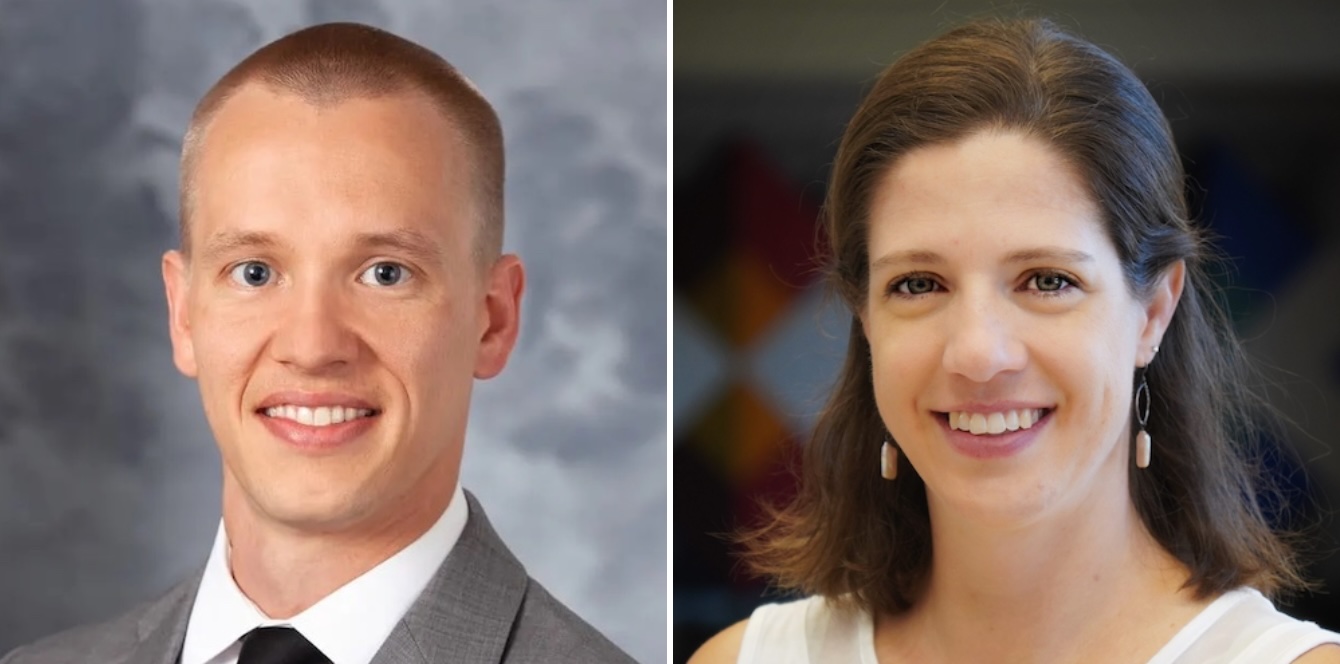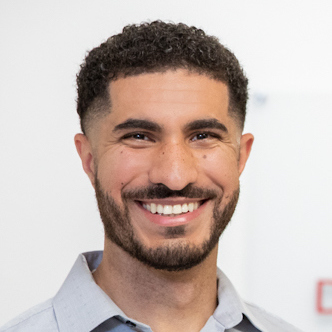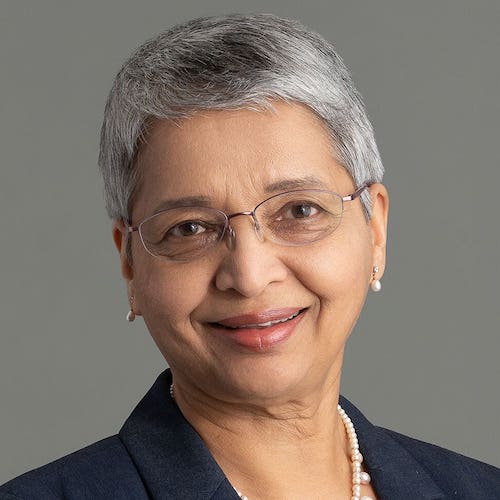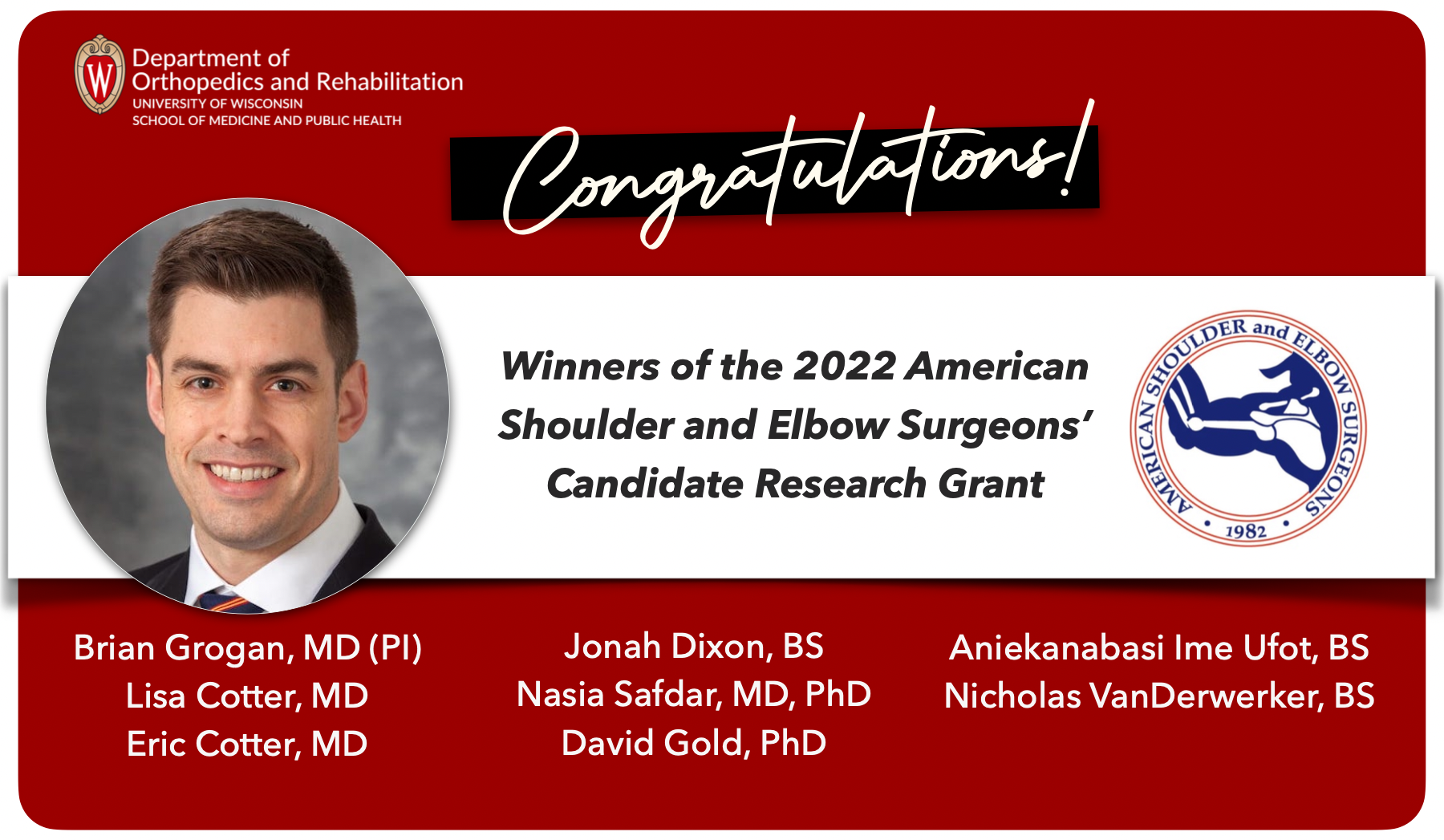Keith Knurr, PhD, and Corinne Henak, PhD, receive ICTR grant for knee osteoarthritis research
 Keith Knurr, DPT, PhD, assistant professor, Department of Orthopedics and Rehabilitation, and Corinne Henak, PhD, assistant professor, Departments of Mechanical Engineering / Orthopedics and Rehabilitation / Biomedical Engineering, were recently awarded the UW Institute for Clinical and Translational Research (ICTR) Advancing Translational Research and Science (ATRS) project planning grant.
Keith Knurr, DPT, PhD, assistant professor, Department of Orthopedics and Rehabilitation, and Corinne Henak, PhD, assistant professor, Departments of Mechanical Engineering / Orthopedics and Rehabilitation / Biomedical Engineering, were recently awarded the UW Institute for Clinical and Translational Research (ICTR) Advancing Translational Research and Science (ATRS) project planning grant.
Their project, “A Step Towards Precision Medicine: Collaborative Team Building to Leverage Quantitative MRI for the Clinical Management of Knee Osteoarthritis,” aims to develop a pipeline for creating patient-specific knee models that can provide estimates of the loads experienced by the cartilage across various tasks, such as walking, running, and jumping. These models may provide better insight into an individual’s risk of osteoarthritis onset and progression.
To make these models patient-specific, Drs. Knurr and Henak will use an individual’s knee shape acquired from standard knee MRIs, cartilage mechanical properties from advanced quantitative MRIs of the cartilage, and movement biomechanics from three-dimensional motion capture analyses within Badger Athletic Performance.
This project will also leverage data from a separate study, partially funded by a Department of Orthopedics and Rehabilitation Freedom of Movement Fund Award, investigating factors associated with early signs of knee osteoarthritis in former collegiate athletes with a history of anterior cruciate ligament reconstruction. The team chose to apply these patient-specific knee models to individuals following anterior cruciate ligament reconstruction because they are at a high risk of developing osteoarthritis.





